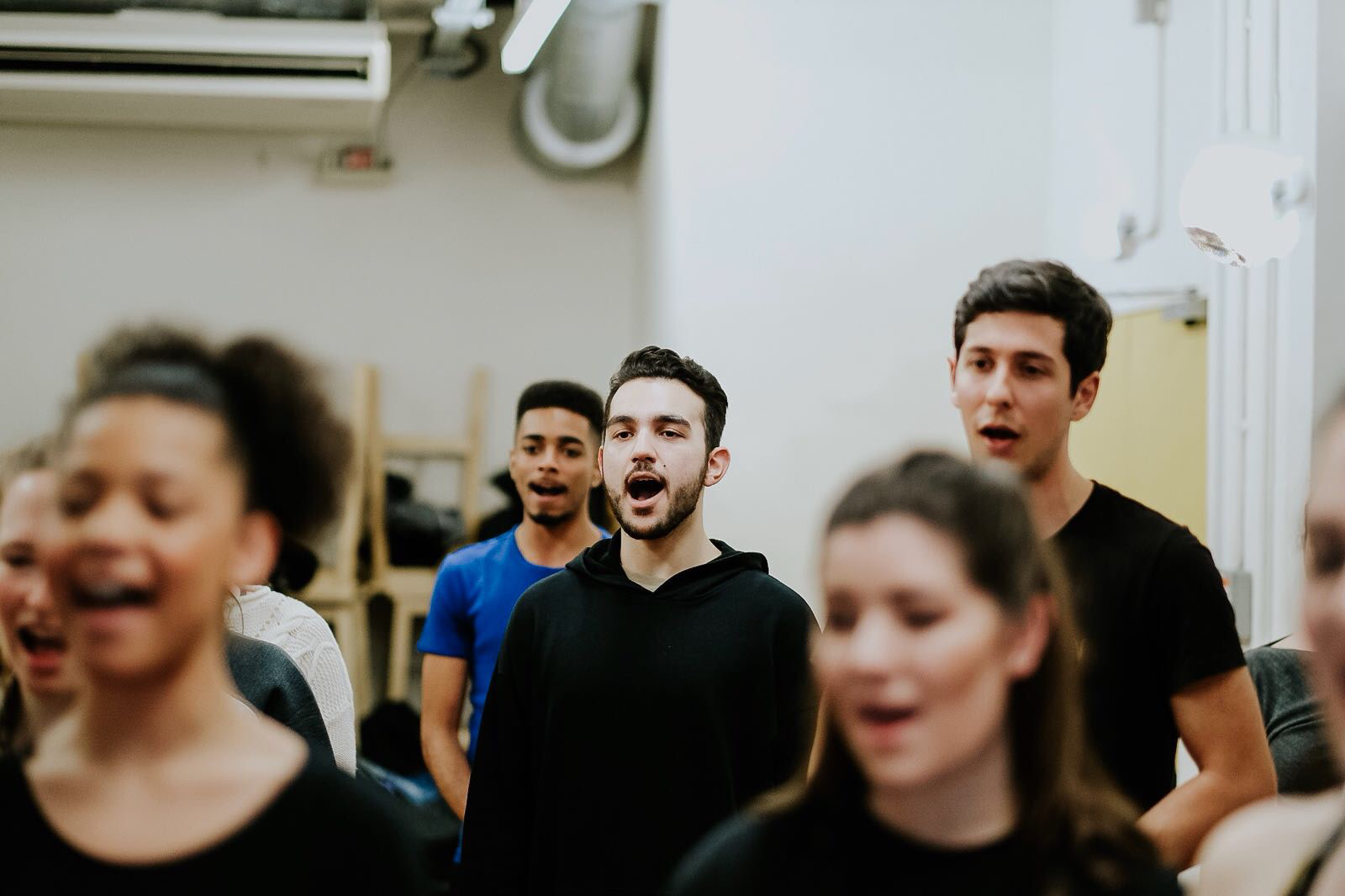Tips for preparing for your first day of rehearsal, what to bring, and how to overcome nerves
The first day on a new job can be daunting. As actors, we spend most of our time feeling anxious, scared and overwhelmed when we haven’t booked any work for a long period of time. And when the call finally comes and we book a new role, we’re often set off once again with feelings of imposter syndrome. Knowing what to expect on your first day of theatre rehearsals can help ease a lot of these worries.
So, whether you’re new to working in theatre, or you’re getting back into stage work, here are some answers to questions and concerns you may have about your first day of theatre rehearsals.
Preparing for Theatre Rehearsals
You’re likely to be sent the script before your first day, so be sure to read it through before you start rehearsals. In some cases, reading the script a couple times over is very helpful.
The first time you read the script through, you should get a sense of the story and how your character fits into the world of the play. This is where you can indulge in the world of the production and allow yourself to feel excited by it.
The second time should be more practical. Personally, I like to create a glossary listing all the words I don’t know the meaning of – along with any words I don’t know how to pronounce. When I have a comprehensive list, I go through each word one by one and research their meaning, pronunciation and origin.
After this, I highlight my lines and create a list of things to do to prepare for the rehearsal process. Things I like to include can range anywhere from creating a playlist for my character to what films and documentaries to watch for research. Lists like this can be specific to you and whatever you think will help you during the rehearsal process.
What to Bring to Rehearsal
If you’re unsure what to take with you on your first day, think back to your first day of school. These are a few things I always take with me:
- The script
- A notebook
- A pen or pencil
- A water bottle
- Some snacks
In the Rehearsal Room
You’ll have received instructions from stage management about where to go on your first day and what time to be there. Expect to enter a room with a large table and chairs set up around it. The director will probably introduce themselves first, and then there’ll be introductions between the cast and production team.
I like to make a note of everyone’s names and their role on the front page of my script – this way I know who’s playing who and who the members of production are, as it can be a lot to remember on the first day.
The Read Through
The first day of rehearsals is where you’ll hear the script being read aloud for the first time. You and the other actors will read through the script, and stage directions will be read by a member of the production team. There’s no pressure on the first read through to ‘act’ – the purpose is to simply hear each other and get a sense of the play.
In some instances, members of production will be taking notes for what they should be working on after hearing the piece out loud. This can include the costume, set and sound designers.
The first read through can be scary as it’s where you’ll be reading out loud to a room full of people you just met – but remember, everyone in the room is there for the same reason. There should be a sense of excitement where you can play and be curious about what you’re about to embark on.
Overcoming Feelings of Fear and Anxiety
Outside of knowing what to expect on your first day, there is also knowing what feelings to expect before you start working on the production. I don’t know a single actor who doesn’t feel a sense of fear and anxiety around the work they do, even after they’ve booked the job. There’s a funny comfort in knowing that even Academy Award-winning actress, Viola Davis, has feelings reminiscent of imposter syndrome.
So, how do you combat nerves and use them productively?
Your anxiety comes from not knowing how things will go, and your excitement is overshadowed by fear. You care about this, so you have feelings and emotions about doing a good job. What has helped me in the past is to try and take myself and my ego out of the process.
It’s work, and work takes dedication and commitment. Try to create a routine around rehearsals; make lists of things to do outside of rehearsals and take breaks. By giving yourself a sense of productivity, you can take away the fear and replace it with a sense of control and stability.
What to Expect in the First Week of Rehearsals
After getting through the first day, the rest of the week will feel slightly less daunting. You may wake up with more curiosity and excitement about getting up to go to work every day. After hearing the play aloud, you will feel excited to get up on your feet and watch the production really take its shape.
Soon after, things will get organised and start moving pretty fast and the stage manager will be the person who gives you the information you need going forward. This will include the production schedule, costume fittings and any other important information you’ll need to know.
You’ll probably get an off-book date for when you need to know your lines by and when you’ll be moving into the theatre. Most productions have a separate rehearsal space and move onto the stage closer to opening.
The key thing to remember is that the first day of rehearsals will be a memory you look back on. For example, the moment when you met your cast for the first time. When you had zero expectations and a blank space where the production appeared.
Preparation can take you far in terms of setting you up for the work during rehearsals, but it’s the belief in yourself and that you belong in the room that takes you to closing night with a sense that you have been a part of something really special.
From all of us at Spotlight, we want to say a huge thank you to Karen for sharing these great rehearsal tips!
Take a look at our News & Advice section for more great advice about theatre.
Image credit: SDI Productions / iStock












